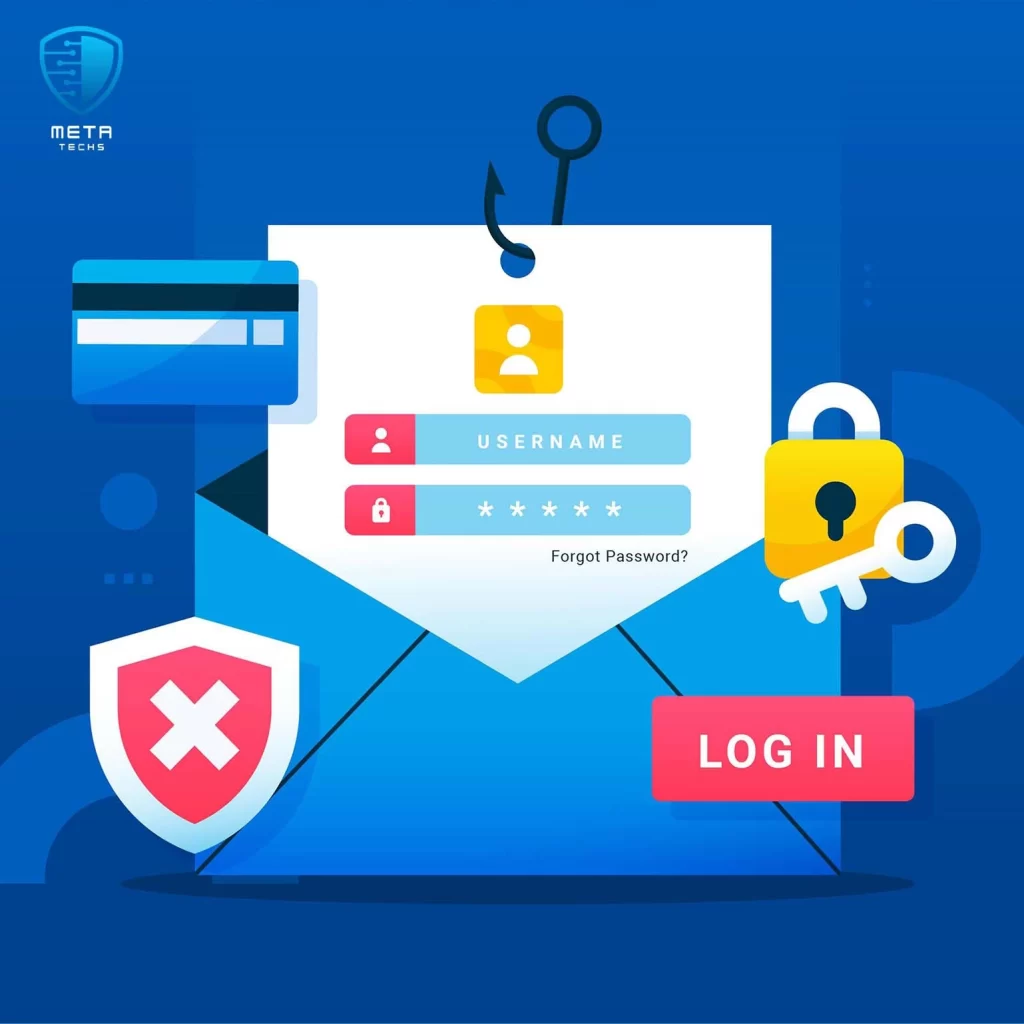
In today’s digital age, email has become essential for communication and business operations. However, it has also appeared as a primary vector for cyberattacks. Cybercriminals constantly evolve their tactics, making email threats more advanced and dangerous than ever before.
Email Security is about protecting email communication from cyber threats like phishing, spam, malware, and other cyberattacks. The implementation of this security is done using some technologies and best practices and implementing measures to secure both inbound and outbound email traffic.
The key factors of Email Security:
Organizations can reduce the risk of email attacks and protect their sensitive data, by implementing some email security measures.


Email attacks like business email compromise (BEC), ransomware, supplier fraud, and more. targeting a wide range of individuals and organizations. Here are some targets in detail:
As a business owner, if you involve Email Security measures in the organization’s overall cyber security strategy, this could help you to apply the basic needs of your organization like protecting your sensitive information, preventing financial losses, and enhancing your reputation.
So the importance of Email Security includes:
1- Data Protection:
The major risk of emails at any organization is that it used to transfer sensitive data such as financial data, customer records, and intellectual property. Strong email security measures help protect this information from unauthorized access and data breaches.
2- Business Reputation:
The leak of Email Security can damage the organization’s reputation easily. And that will lead to a loss of customer trust and potential financial consequences. By protecting sensitive information and preventing cyberattacks, organizations can safeguard their reputation and build customer trust.
3- Regulatory Compliance:
Email security plays a crucial role in ensuring compliance with various data privacy and security regulations. Many industries are subject to strict data protection laws, such as the General Data Protection Regulation (GDPR) and the Health Insurance Portability and Accountability Act (HIPAA).
By investing in robust email security solutions, organizations can protect their email infrastructure, safeguard their data, and maintain their business operations.
While traditional perimeter-based security measures, such as firewalls and intrusion detection systems, are essential, they are often insufficient to protect against modern cyber threats. People-centric security, which focuses on educating and empowering employees, is becoming increasingly important.
By adopting a people-centric approach to security, organizations can create a more secure environment and reduce the likelihood of successful cyberattacks.
There are powerful tools to enhance email security like SPF (Sender Policy Framework) and DMARC (Domain-Based Message Authentication, Reporting & Conformance). By implementing these protocols, you can help prevent email spoofing and phishing attacks.
1- understand SPF records: SPF records specify which IP addresses are authorized to send email.
2- Verify SPF records: Use DNS tools to check the SPF record for your domain and ensure that the record is correctly configured and includes all authorized sending servers.
3- Correct Errors: if you find errors work with your domain registrar or email provider to correct them.
4- Understand DMARC Policy: use DMARC as a powerful email authentication that protects your domain from phishing attacks.
5- Set Up DMARC Policy Levels: Start with a “p=none” policy to monitor authentication failures without taking any action then increase the policy to “p=quarantine” to quarantine suspicious emails. And finally, implement a “p=reject” policy to reject all emails that fail authentication.
6- Monitor DMARC Reports: Regularly review DMARC reports to identify and address issues.
Choosing the right email security service is essential to ensure the effective security of your organization, here are some key factors to consider when selecting the Email Security Services:
Email security is a critical component of any organization’s cybersecurity strategy. By implementing robust email security measures, you can protect your sensitive data, maintain your reputation, and ensure business continuity.
Meta Techs offers comprehensive email security solutions to help organizations protect their email infrastructure. Our experts can help you implement and manage effective email security measures, including:
By partnering with Meta Techs, you can ensure that your organization is well-protected from email-based attacks.
In today’s digital age, email remains a critical communication tool for businesses of all sizes. However, it also presents significant security challenges. By understanding the threats, implementing robust security measures, and partnering with reputable cybersecurity providers like Meta Techs, organizations can protect their email infrastructure and minimize the risk of cyberattacks.
Remember, email security is an ongoing process. Stay informed about the latest threats, regularly update your security measures, and educate your employees to create a strong defense against cyberattacks.
By following these best practices, you can significantly enhance your email security:
Create strong unique passwords for your email account, Use a combination of uppercase and lowercase letters, numbers, and symbols. Avoid using easily guessable information like birthdays or pet names.
Enable 2FA to add an extra layer of security requires a second form of verification, such as a code sent to your phone.
especially those with urgent requests or suspicious attachments. Verify the sender’s email address and avoid clicking on links or downloading attachments from unknown sources.
Keep your device’s operating system and security software up-to-date. Use antivirus and anti-malware software to protect against threats. Be careful about using public Wi-Fi networks, as they may be vulnerable to hacking.
Avoid sending sensitive information via email. Encrypt sensitive emails to protect them from unauthorized access.
Check your email account regularly for suspicious activity. Be aware of any unusual login attempts or unauthorized activity.
Call now to explore our innovative services and make your experience with us unique and fruitful
WhatsApp us